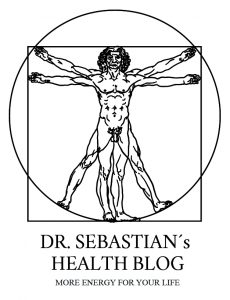[toc]
Vitamins
Vitamins are essential for vital functions within your body that are driven by chemical reactions within your cells. Vitamins are micronutrients that do not provide energy. Every vitamin fulfils specific tasks within your body. Beside others, important functions of vitamins are:
- Regulation of metabolism (carbohydrates, proteins and minerals)
- Building cells, bones and teeth
- Boosting the immune system
14 Essential vitamins
Of the 20 organic chemical compounds that are known as vitamins, 14 are considered to be essential for humans. Essential means that without these essential vitamins a healthy life would not be possible and diseases would inevitably emerge.
“Essential vitamins are needed for a healthy life”
Because the water-soluble vitamins (except vitamin B12) cannot be stored for long time periods, they must be consumed regularly via foods, drinks, or supplements. Vitamin deficiency of water-soluble vitamins can occur within weeks, if intake is insufficient.
Dietary vitamin supplements
Most vitamins can be obtained from a healthy diet. Exceptions are:
- Vitamin B12 – Usually only problematic for vegans and some vegetarians
- Vitamin D – Synthesised via the skin under UVB-light (sun), diet plays a minor role
The use of dietary vitamin supplements is a good way to (temporally) compensate for vitamin deficiency states. The caveat with dietary supplements is that you might overdose a certain vitamin, which then would do more harm than good.
Vitamin overdoses
Vitamin overdoses (hypervitaminosis) occur almost exclusively by an uncontrolled intake of dietary supplements. Because of the way they are stored, overdosing is a great issue for fat-soluble vitamins (A,D,E,K). Therefore, when using these vitamins as dietary supplements to compensate for vitamin deficiency, fat-soluble vitamin blood levels should be regularly monitored.
“Water-soluble vitamins cannot be stored in your body
for long time periods. They must be consumed regularly!”
The 14 essential vitamins are:
- Vitamin A – Retinoids
- Vitamin B-Complex – 8 B-Vitamins
- Vitamin C – Ascorbic acid
- Vitamin D – Cholecalciferol
- Vitamin E – Tocopherol
- Vitamin K – Phylloquinones (K1)and Menachinones (K2)
Today, the eight B vitamins (B1, B2, B3, B5, B6, B7, B9, B12) are grouped under the collective term “Vitamin B-complex”. Furthermore, there are two natural types of vitamin K, vitamin K1 and vitamin K2.
Most of the vitamins cannot be synthesised by our own body and need to be consumed regularly via foods, drinks, or supplements. Only the vitamins B3, D, and K2 can – to a certain extent – be synthesised inside our own body.
Nomenclature
The term vitamin (from lat. “Vita” for life and “amin” for nitrogen-containing) was coined in 1912 by Casimir Funk, who assumed that all vital substances contained an amino (NH2) group. Only later did it emerge that not all vitamins are amines.
The naming of the vitamins with large letters of the alphabet goes back to the American biochemist Elmer McCollum, who introduced the names vitamin A, B, C and D in 1913. Later, vitamins E and K were added.
Gaps in the series of letters naming vitamins arose because some substances were removed from the series of vitamins, as it turned out that they were not having the function of a vitamin. One example of a former vitamin, which is not regarded as such by conventional medicine anymore, is the former vitamin B17 (Laetrile or Amygdaline).
Chemical properties – Fat-soluble and water-soluble vitamins
Chemically, vitamins are not a homogenous substance group at all. The chemical name of a vitamin depends on its chemical structure. Sometimes there exist various trivial names for the same vitamin.
Basically, one can divide the 14 vitamins relevant to humans in fat-soluble and water-soluble vitamins. These chemical properties are closely related to the absorption and storage of the vitamins inside our body (see description of each vitamin).
Fat-soluble vitamins – ADEK
- Vitamin A
- Vitamin D
- Vitamin E
- Vitamins K1 and K2
Water-soluble vitamins
- Vitamin B complex – 8 B vitamins (B1, B2, B3, B5, B6, B7, B9, B12 )
- Vitamin C
Vitamin storage
Our body stores vitamins in its cells. Fat-soluble vitamins are stored in fat deposits and in the liver. Water-soluble vitamins are stored in our body’s cells only for a short time and cannot be stored for long time periods. An exception is the water-soluble vitamin B12 (cobalamin), which – despite its water solubility – can be stored in the liver and other tissues and thus cover a period of lack for up to one to two years. The other water-soluble vitamins, vitamin C and seven of the eight B vitamins (except vitamin B12), cannot be stored for more than 4 weeks.
“Vitamin overdoses can occur upon intake of dietary supplements.”
The use of dietary supplements to compensate for vitamin deficiency is generally less problematic with water-soluble vitamins, because excessive water-soluble vitamins can be excreted via urine and stool. Only three water-soluble vitamins can actually be overdosed:
- Vitamin B5 – Weekly intake of more than >10 mg per day
- Vitamin B6 – When taking more than >1-2 g per day
- Vitamin C – Interferes with absorption of vitamin B12 and oxalate may form kidney stones
Intake and availability of vitamins from dietary supplements
Whereas most water-soluble vitamins are easily absorbed in the small intestine by specific transport systems, fat-soluble vitamins can only be absorbed in the intestines together with fats. That´s why a sprinkle of oil is always a good idea when serving fresh salad!
Most vitamins are immediately available to the body after absorption, but some vitamins are supplied to the body as precursors (provitamins), which are later converted into the corresponding active form within in the body. Examples are Provitamin A (beta-carotene) from carrots and vitamin D, which is converted into its physiologically active form calcitriol (1,25-OH-vitamin D) directly where it is needed, within the target cells.


Leave A Comment